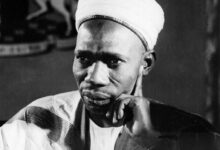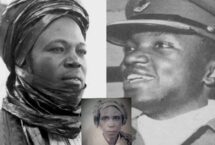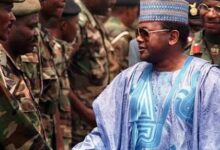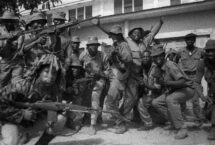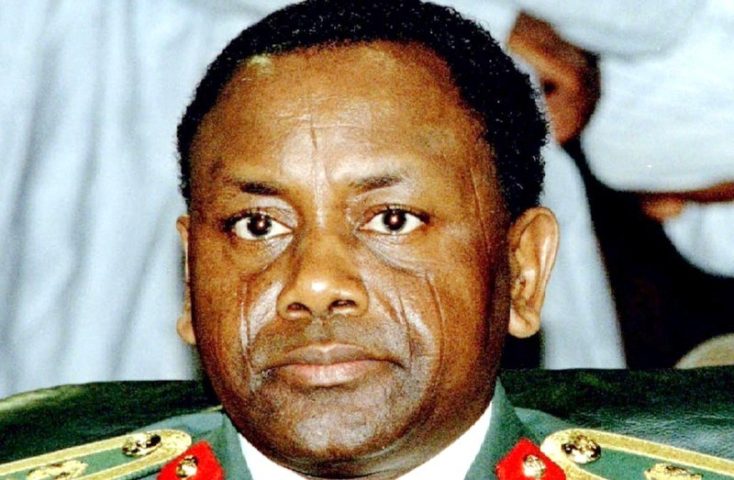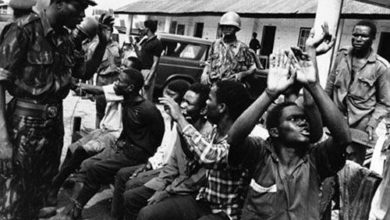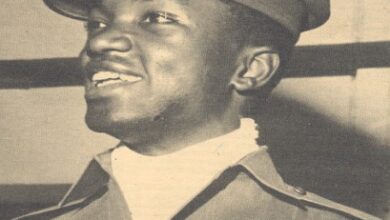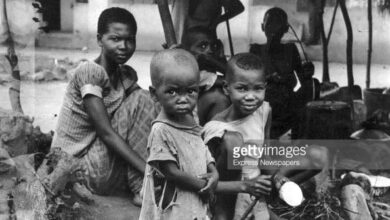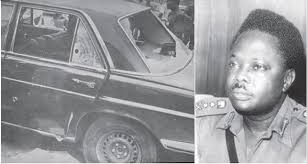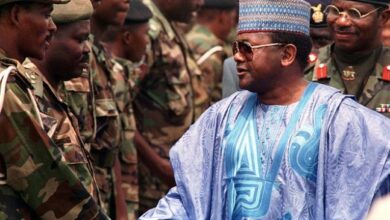What Happened On The Night We Were To Be Executed By Abacha’s Boys – Oladipo Diya
Lt. General Oladipo Diya served as the Chief of the General Staff (Deputy Head of State) during the military regime of late General Sani Abacha from 1994 till 1977 when he was arrested for treason after an alleged failed coup. In this interview with the Nigerian Tribune, Lt. Gen. Diya talked about the other side of General Abacha, his experiences in the Nigerian military, the bomb planted to kill him and the phantom coup widely believed to have been targeted at him.
The alleged coup of 1997 was reportedly targeted at you as the second in command to the late General Sani Abacha. Can you recall how it all happened?
We thank God that it was a phantom coup, but then whether phantom or real or imagined, in the army, a coup has always been taken very seriously. But there had never been a coup where you start taking the video or film of it even before it happened. But then, a lot of activities had happened before.
There is the story of how a plane which I was to take to Makurdi was planned to be bombed, but by the stroke of fortune, I was 10 minutes late, which was really not in my character. That lateness was what God actually used to save my life. Within those 10 minutes, those who were priming the bomb so that the plane would explode 10 minutes after take-off were killed by the bomb before I got there. I didn’t go ahead with the journey.
Although everybody around me, including my chief security officer, said I should continue on the journey, I said no because if I did, the thing would have been repeated in Makurdi. So, I stopped and that was what saved my life. If those who were responsible for that bomb knew God, they would have stopped.
They went on and three weeks after, I was arrested on allegation of planning a phantom coup. But I thank God that on every step that was taken thereafter, Almighty God saved me. And since the day they failed in their attempt to blow me away, I gained the confidence that, by the grace of God, I am beyond human destruction.
After my arrest, while the impression was being given to me that everybody was being arrested, I was detailed to talk to all the service chiefs, Bamaiyi and GOCs, Bashir Magashi and co. I was asked to talk to them because I was being told that we should continue with the government and I said no, it is not done. I thought I was talking frankly because I joined the army at the age of 18, going to 19 and I did not know how to tell lies, so, I would tell you my mind: ‘it is not done. If somebody wants to contest an election, he should leave the army; he should leave the government and contest as a civilian.
Was that your advice to Abacha?
That was my advice; that he should consult with all the service chiefs. I talked to all the service chiefs one by one and they told me the same thing; that no, he should not continue, not knowing that some of them had tape recorders on them. Anyway, like I said, all is now history. We have put all of this behind us. I am only grateful to God because on three occasions, they attempted to kill us.
When we were in detention and I discovered that it was only Yoruba officers, including Adisa and Olanrewaju, who were arrested, I was shocked. That then forced me to ask where Bamaiyi, Magashi and others were. So, I said this was a conspiracy. That was the statement I made and the whole world echoed it and it was what actually saved my life and turned the table against the whole conspiracy.
Can you tell us what Abacha’s agenda was in returning power to civilians when he took over power? Did he have any plan to stay for one or two years before returning power to civilians?
That was the intention. There was no intention for any permanent stay in power. The military is not for permanence, it is an aberration. You just come in, do whatever you want to do and then hand over. That is military regime. When a military regime comes and it wants to stay, nobody would allow it. It is not done. Okay, look at the situation in Egypt now. The commander-in-chief in that country has just resigned to contest an election.
Although I wouldn’t say that is even good, it is better than to come and stay put. He has resigned and the vice president has been sworn in as the new commander-in-chief of the armed forces in Egypt. If he stands election and wins and the exercise is seen to be free and fair, they will appreciate him rather than for him to sit tight in power and say he is going to transform himself into a civilian president.
Do you think General Abacha was being pressured by some people within and outside the military to stay in power?
I wouldn’t know, because around that time, I was in detention and when you are in detention, you don’t have access to newspapers; you don’t have access to news; you don’t even get to hold discussion with anybody. But I knew he had intention to turn into civilian president because he confided in me and I said no and he asked me to call the service chiefs one by one and they all said no to me. I don’t know what they said to him.
When you were thrown in detention, did you have any hope of surviving your ordeal?
Yes, immediately they failed in the venture to prime the bomb they wanted to put in my plane and the two of them died, as confessed by some people, some confidence just came upon me that I am beyond human destruction. I said it with all belief because it was not just by chance that we were 10 minutes late. Again, I think, on December 14, we were to be executed in Jos, Plateau State.
They had taken us out of prison and Sergeant Barnabas Rogers was in charge, decked in battle dress. They were to take us for execution. They took us out. Adisa was there, so was Olanrewaju. As we were going, around midnight, the vehicle stopped.
The reason the vehicle stopped, we didn’t know, but it stopped. Was it the engine? Was it tyre? We didn’t know. We were there, waiting and waiting. When it was 5:45a.m. in the morning, the driver started the van, made a U-turn and took us back to prison.
Again, what happened? It was miracle of God. It was divine intervention because, you know, one Major was complaining to the GOC. I remember that the GOC was one of our students, now a commandant of the National War College. The Major was challenging the GOC: ‘You are taking these people for execution in the morning. The execution was to take place at 7.00 a.m.
All you were saying was that somebody phoned you on behalf of Abacha. Suppose tomorrow, the person denies, what will you have as evidence?’ The GOC was stunned. We heard the story later after they had returned us to the prison. Then, the GOC now said okay and he started trying to call Abacha, just for Abacha to give a go-ahead. This officer could not do anything without Abacha’s instruction.But Abacha had an attitude: he never picked phone calls. And that attitude of not taking phone calls was another miracle. He did not pick his calls and when the officer tried and tried until around 5:30 a.m. and could not get Abacha, he had to give instruction that they should return us, saying that he would go to Abacha to take permission from him.
He went and got the instruction and said that they should now take us to Kano, where the execution would now be done. They took us to Kano and put us in a small house. I don’t know the owner of that house, a bungalow, but that was where we were all crammed. We got to Kano on Sunday evening for execution the next morning. But that was the night Abacha died. We wouldn’t have known but for one of the soldiers, called Sergeant Bush, who went to buy batteries for his radio — a Hausa man would always have a radio.
That was how we heard that Abacha had died. So, he came back to where we were held in that bungalow and started quarreling with Sergeant Rogers that he heard from a BBC Hausa programme that Abacha died and he was not going to take part in this firing squad except another head of state gave them a directive.
That was the beginning of another controversy between Sergeant Bush and Sergeant Rogers, because three other men supported him. Sergeant Rogers was the one that led the others, the camp of four men. So, we thank God that split caused the delay to execute us, because it was now four on each side.
The other camp led by Bush said if the Rogers group tried to kill us, they would shoot themselves. That created the split and that was why the execution was not carried out. Was that not another divine intervention? It was not by our power, it was God. All this was not known to members of the public, so, I have every cause to be grateful to God.
Given your working relationship with him, what is your impression of General Abacha?
I find it very difficult to really place General Abacha because he did NMT Course 6 and we did NDA 1. That made him about nine months, or say approximately one year, senior to us. You see, seniority in the army is not measured by just the number of years, somebody can just be senior to you by just four months.
When you see the gap in the ranking, people think it is about four, or five, years of seniority. I had known General Sani Abacha for quite some time. In fact, we were together with the Sixth Battalion when I was commissioned and our senior then was Major Benjamin Adekunle. Abacha was known to me. I know he didn’t play with money. If you brought a paper to Abacha and ask him to approve and he saw N1million, he would shout and ask what you wanted to do with it and how you would want him to approve such a huge amount of money.
He would not approve it. So, that gives the impression that he was very strict with money and that was the impression until he became the GOC of 2 Division in Ibadan and later, Chief of Army Staff and then, Chief of Defense Staff. In terms of kindness, if anybody went to Abacha to ask a favour, hardly would you find him say no. This was always the background impression.
So, when you now start hearing all these stories about money stolen here and there, you start wondering, ‘is he the same Abacha?’ And that is why when some people asked me, I told them that I stayed most of the time outside the control of Abacha. I am not really in a position to describe the man.
A newspaper came to me, saying Abacha stole this, Abacha stole that. I said, well, if Abacha stole this and that, I am telling you with all sincerity and from the bottom of my heart that I don’t know how you steal money without the connivance of civilians. Abacha would not go to the ministry of finance and collect money. He would not go to the central bank. So, how did he do it without the connivance of people in the ministry of finance, the security adviser and whatever, because I understand that the most crooked way of stealing money now is through the security vote and this security vote is unauditable. You can’t even see how they spend the money.
I mean, these are variants which the people should look into, especially this ongoing confab. How did he spend the security vote without the knowledge of the ministry of finance or the governor of central bank? How was it done? I have been in the system, but I can tell you that I don’t know anything about it.
Since you ran the regime together, didn’t you ever take decisions that had to do with spending of money together?
Good. We took decisions together up to a point. Beyond that point, it was a military regime, so, one person was in charge, not two people. He was president and commander-in-chief under a military regime. We had the Armed Forces Ruling Council and all the members of the council were junior to the president and commander-in-chief. And if there is anything the commander-in-chief does not like, it doesn’t take time to get such thing amended.
For example, the law then was that the Chief of General Staff was the only officer who could sign a detention order. But in the case of the late Chief M.K.O Abiola, this law was changed overnight and the Chief of General Staff was replaced by the Inspector General of Police as the officer who could sign the detention order. How this changed all of a sudden, I don’t know. Maybe they thought because Abiola and I were Yoruba, I would not cooperate with them.
Thanks for reading, OldNaija.com
References:
- Canada: Immigration and Refugee Board of Canada, Nigeria: The December 1997 coup plot and its aftermath, 1 May 1998, NGA29334.E
- Leaked Video Of Gen. Diya Crying And Begging Late General Sani Abacha – OldNaija.com
- Nigeria Arrests General Accused in a Coup Plot;
Questions? Advert? Click here to email us.




